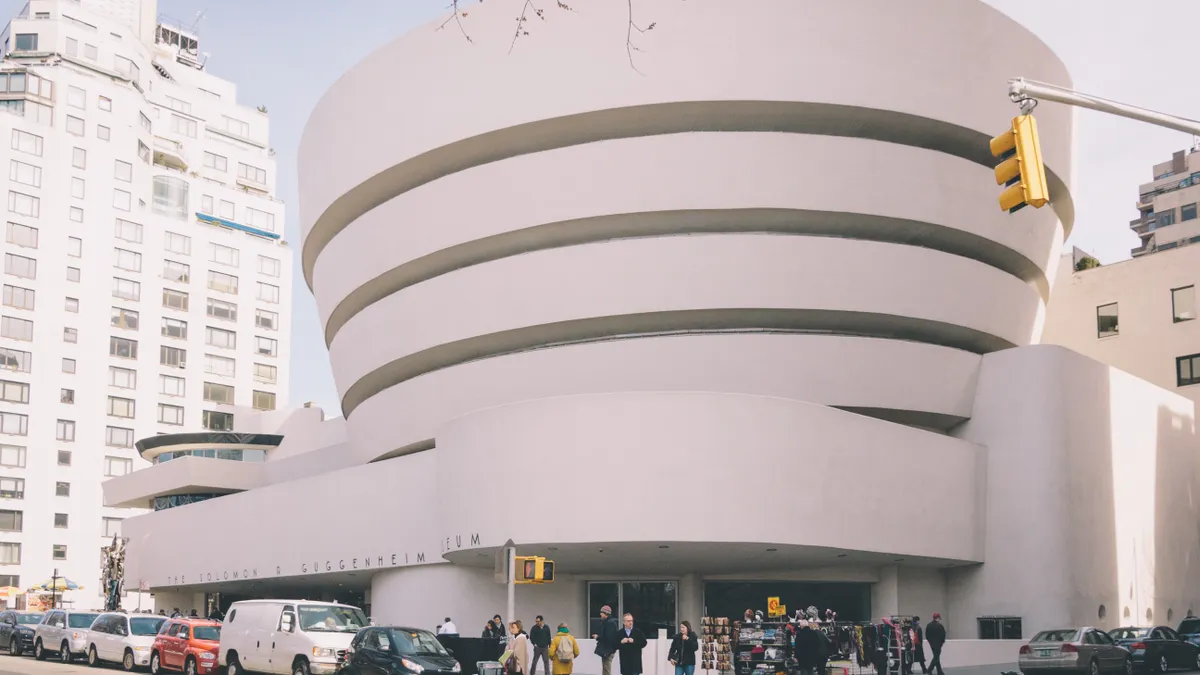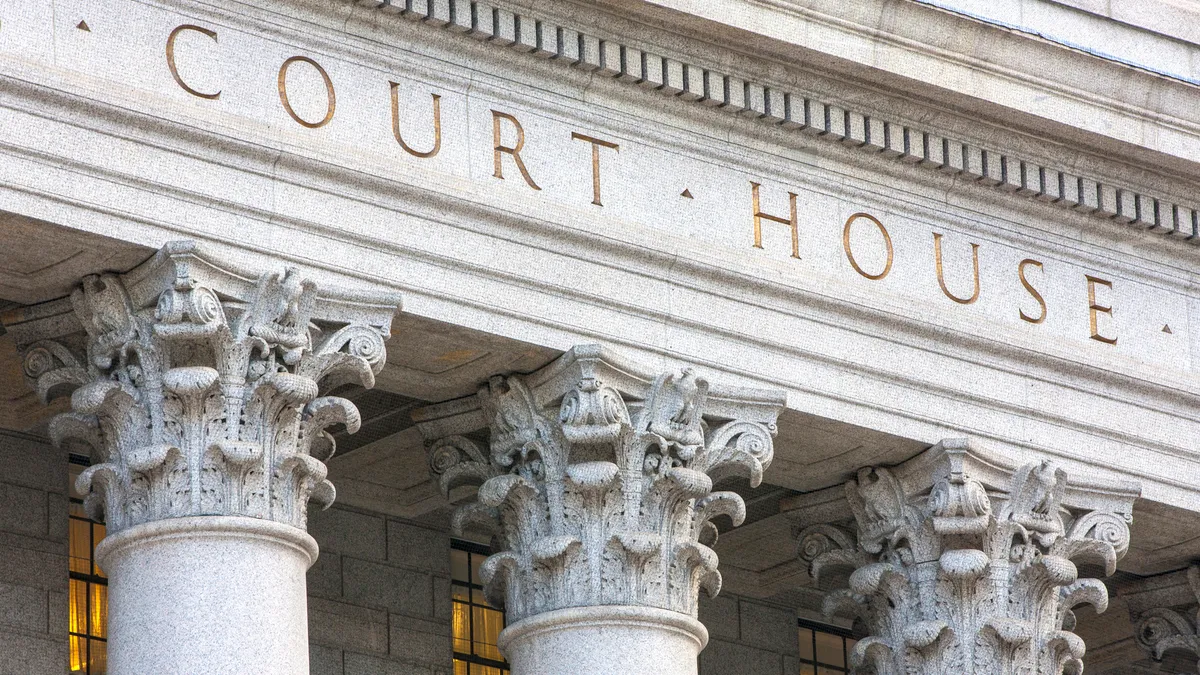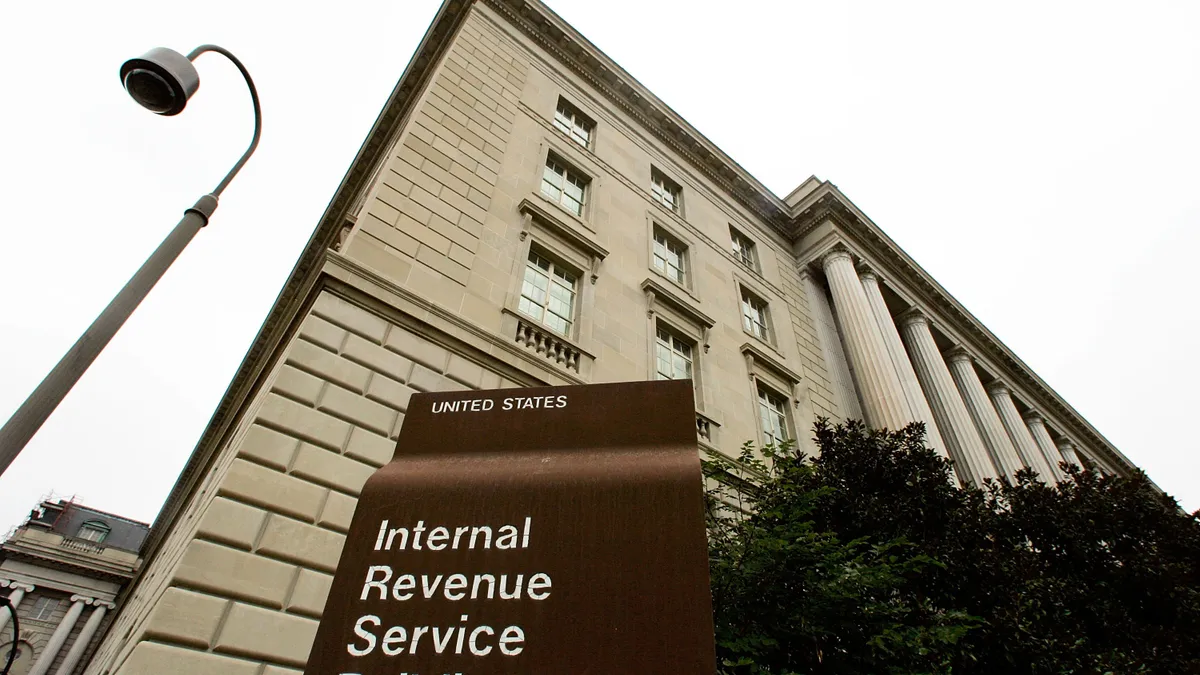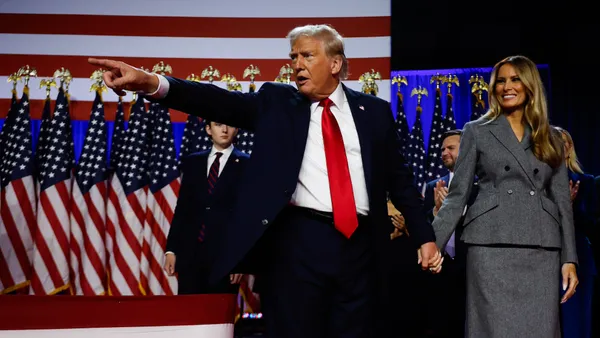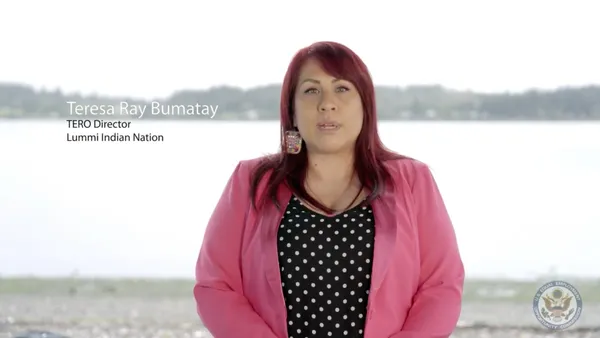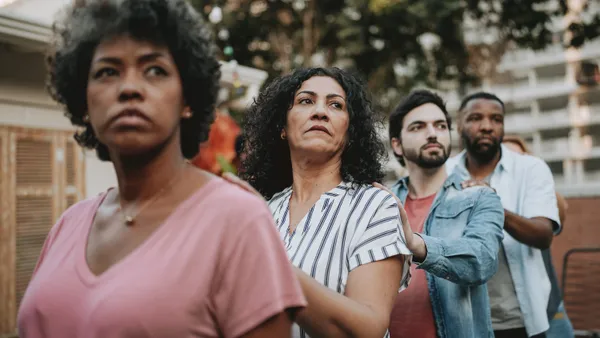Dive Brief:
- The Solomon R. Guggenheim Museum in New York City seeks to build an inclusive professional environment for all staff and will provide anti-racism training among other initiatives, according to its Diversity, Equity, Access and Inclusion (DEAI) plan released Aug. 17 on its website. The public reveal of the two-year plan comes after current and former staff urged the board of trustees to "dismantle systemic racism in our institution."
- A Better Guggenheim collective submitted a letter June 29 to the museum's board of trustees, the collective said in an emailed statement to HR Dive. Written by a diverse cross-departmental group of employees, the letter was signed by 169 current and former staff members dissenting from Guggenheim Director Richard Armstrong's June 7 and 9 statements, the collective said. Armstrong's failure to mention Black Lives Matter was "an inexcusable omission," according to the letter. The collective seeks to end the museum's "deep culture of fear and create a work environment where we all, especially our [Black, Indigenous and people of color] BIPOC colleagues, feel safe, supported and respected," according to the emailed statement. The letter currently has 226 signatures.
- An initiative at the museum was launched "nearly a year ago" to work on institutional culture, Armstrong said June 9 in a written response to the nationwide calls for social justice following the killing of George Floyd. He acknowledged that "missteps" were made in the institution's 80-year history. The "museum has made mistakes," and has "tried as much as possible to address them and we will go on making mistakes," he said in an interview with The New York Times published June 7. The DEAI plan "highlights issues related to those stated in our letter," the collective told HR Dive. "However, neither the board nor museum executives have responded to our letter or follow-up requests to discuss items that have not been addressed." HR Dive contacted the Guggenheim's press office for a response to the collective's statements but did not receive a reply.
Dive Insight:
Amid nationwide protests for racial justice, companies made donations and released statements, but many employees sought authentic action internally as well, sources say.
Employers either gave "paid lip service" to demands for racial justice or showed authentic support, VH Included Consulting CEO Katee Van Horn told HR Dive in a previous interview. And it's important for an organization to have internal discussions before making a public statement on social issues to ensure the message resonates with employees, Avalara Chief Human Resources Officer Kathleen Weslock previously told HR Dive.
In a Twitter post June 2, the Guggenheim announced it was observing Blackout Tuesday, a day for the entertainment industry to stand in solidarity with the Black Lives Matter movement by going silent on social media, according to Variety. In response, Chaédria LaBouvier, who in 2019 became the first Black person at the museum to curate a solo exhibition with Basquiat's Defacement: The Untold Story, said she was excluded from a panel about the show. "LaBouvier encountered institutional racism in a multitude of forms leading up to, during, and following the exhibition's run," A Better Guggenheim said in the letter.
In the fall, a special committee created to oversee an independent investigation into the "facts and circumstances surrounding the Basquiat exhibition" will provide recommendations to an executive committee, according to the DEAI action plan.
Museums in New York City were temporarily closed in the spring to prevent the spread of the novel coronavirus. New York Governor Andrew M. Cuomo announced museums will be permitted to reopen Aug. 24.
As the Guggenheim prepares for a return to work, among its efforts, it plans to create a cabinet-level position dedicated to overseeing the DEAI plan; review hiring processes and train hiring managers to "ensure biases are removed;" strengthen policies for reporting and resolution of staff complaints of discrimination; and strengthen the employee relations function in the HR department, according to the document. The plan shows a "greater sensitivity toward respect" and will provide increased opportunities for "a variety of people to imagine working in museums as a sustainable career path," Armstrong told The New York Times.
All of the museum's departments were involved in the "thinking represented in this plan, and as such we stand behind it as a collective vision for action," the Guggenheim stated in the document. It is one of several major museums pledging to make internal improvements in diversity and inclusion, according to ArtNet.
But organizations often struggle with deploying diversity, equity and inclusion (DEI) goals, David Pedulla, an associate professor of sociology at Stanford University, told HR Dive in a previous interview. Organizations should use evidence-based insights to create DEI initiatives followed by quantifiable goals, Pedulla suggested. And buy-in from the top is vital. Driving cultural change within an organization needs the firm support of leadership in order to be successful, Lynn McMahon, Accenture's New York Metro Office managing director and North America media and entertainment lead, previously told HR Dive.
"Culture starts at the top, leaders must set a standard and communicate that down throughout all levels of leadership — sharing and measuring cultural targets sends a message that culture is a top business priority," McMahon said.



